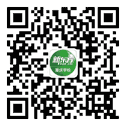2016年6月英语四级考试:仔细阅读练习(20)_英语四级分值分配
2016-07-21 10:25
来源:新东方网整理
作者:
Communications technologies are far from equal when it comes to conveying the truth. The first study to compare honesty across a range of communication media has fund that people are twice as likely to tell lies in phone conversations as they are in emails. The fact that emails are automatically recorded—and can come back to haunt (困扰) you—appears to be the key to the finding.
Jeff Hancock of Cornell University in Ithaca, New York, asked 30 students to keep a communications diary for a week. In it they noted the number of conversations or email exchanges they had lasting more than 10 minutes, and confessed to how many lies they told. Hancock then worked out the number of lies per conversation for each medium. He found that lies made up 14 per cent of emails, 21 per cent of instant messages, 27 per cent of face-to-face interactions and an astonishing 37 per cent of phone calls.
His results to be presented at the conference on human-computer interaction in Vienna, Austria, in April, have surprised psychologists. Some expected emailers to be the biggest liars, reasoning that because deception makes people uncomfortable, the detachment (非直接接触) of emailing would make it easier to lie. Others expected people to lie more in face-to-face exchanges because we are most practised at that form of communication.
But Hancock says it is also crucial whether a conversation is being recorded and could be reread, and whether it occurs in real time. People appear to be afraid to lie when they know the communication could later be used to hold them to account, he says. This is why fewer lies appear in email than on the phone.
People are also more likely to lie in real time—in a instant message or phone call, say—than if they have time to think of a response, says Hancock. He found many lies are spontaneous (脱口而出的) responses to an unexpected demand, such as: “Do you like my dress?”
Hancock hopes his research will help companies work our the best ways for their employees to communicate. For instance, the phone might be the best medium foe sales where employees are encouraged to stretch the truth. But, given his result, work assessment where honesty is a priority, might be best done using email.
57. Hancock’s study focuses on ________.
A) the consequences of lying in various communications media
B) the success of communications technologies in conveying ideas
C) people are less likely to lie in instant messages
D) people’s honesty levels across a range of communications media
58. Hancock’s research finding surprised those who believed that ________.
A) people are less likely to lie in instant messages
B) people are unlikely to lie in face-to-face interactions
C) people are most likely to lie in email communication
D) people are twice as likely to lie in phone conversations
59. According to the passage, why are people more likely to tell the truth through certain media of communication?
A) They are afraid of leaving behind traces of their lies.
B) They believe that honesty is the best policy.
C) They tend to be relaxed when using those media.
D) They are most practised at those forms of communication.
60. According to Hancock the telephone is a preferable medium for promoting sales because ________.
A) salesmen can talk directly to their customers
B) salesmen may feel less restrained to exaggerate
C) salesmen can impress customers as being trustworthy
D) salesmen may pass on instant messages effectively
61. It can be inferred from the passage that ________.
A) honesty should be encouraged in interpersonal communications英语四级分值分配
B) more employers will use emails to communicate with their employees
C) suitable media should be chosen for different communication purposes
D) email is now the dominant medium of communication within a company
参考答案:
57. D 58. A 59. A 60.B 61. C

新东方重庆学校微信(微信号:xdf_cq)
最新考试资讯、教育新闻,请扫一扫二维码,关注我们的官方微信!
版权及免责声明
①凡本网注明"稿件来源:新东方"的所有文字、图片和音视频稿件,版权均属新东方教育科技集团(含本网和新东方网) 所有,任何媒体、网站或个人未经本网协议授权不得转载、链接、转贴或以其他任何方式复制、发表。已经本网协议授权的媒体、网站,在下载使用时必须注明"稿件来源:新东方",违者本网将依法追究法律责任。
② 本网未注明"稿件来源:新东方"的文/图等稿件均为转载稿,本网转载仅基于传递更多信息之目的,并不意味着赞同转载稿的观点或证实其内容的真实性。如其他媒体、网站或个人从本网下载使用,必须保留本网注明的"稿件来源",并自负版权等法律责任。如擅自篡改为"稿件来源:新东方",本网将依法追究法律责任。
③ 如本网转载稿涉及版权等问题,请作者见稿后在两周内速来电与新东方网联系,电话:010-60908555。